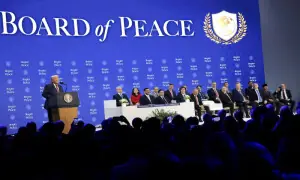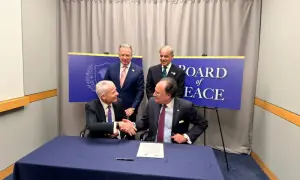KLF panel debates how rising population can be turned into an asset
2 min readA panel of experts at the 16th Karachi Literature Festival grappled with the critical issue of Pakistan’s rapidly expanding population and its implications for the nation’s future. Moderated by Naeem Sadiq, the discussion featured Dr. Azra Fazal Pechuho, Lubna Naz, Rehana Ahmed, and Khalid Masud.
The panelists debated whether Pakistan’s demographic trends represent an impending crisis or a potential engine for economic growth, emphasizing the urgent need for effective policy and strategic planning.
The stark reality of Pakistan’s current situation was highlighted: the world’s fifth most populous nation, with over 26 million out-of-school children, 3.3 million child laborers, 1.2 million street children, and 12 million malnourished children. The daily birth rate of approximately 17,554 babies further underscores the challenge.
While global fertility rates have fallen significantly, Pakistan’s remains stubbornly high at 3.6, necessitating the construction of 87 new schools daily to keep pace. This contrasts sharply with neighboring countries like Bangladesh (1.9), India (2), and Nepal (2), as well as global trends, with all 27 EU countries exhibiting fertility rates below 2.
Dr. Pechuho emphasized the crucial role of the private healthcare sector, noting that over 70% of Pakistanis rely on private services, yet these largely focus on revenue-generating treatments rather than preventative measures like family planning.
She urged government intervention to establish national goals for the private sector, advocating for mandatory family planning counseling and awareness in every clinic. The high cost of contraceptives, often donor-funded or imported and taxed as luxury goods, further exacerbates the problem.
The panelists concluded by stressing that investment in education, healthcare, and family planning is crucial to transforming Pakistan’s population from a potential liability into a valuable asset. They called for a collaborative public-private sector strategy to address these urgent issues and unlock the potential of Pakistan’s young population.
For the latest news, follow us on Twitter @Aaj_Urdu. We are also on Facebook, Instagram and YouTube.























Comments are closed on this story.